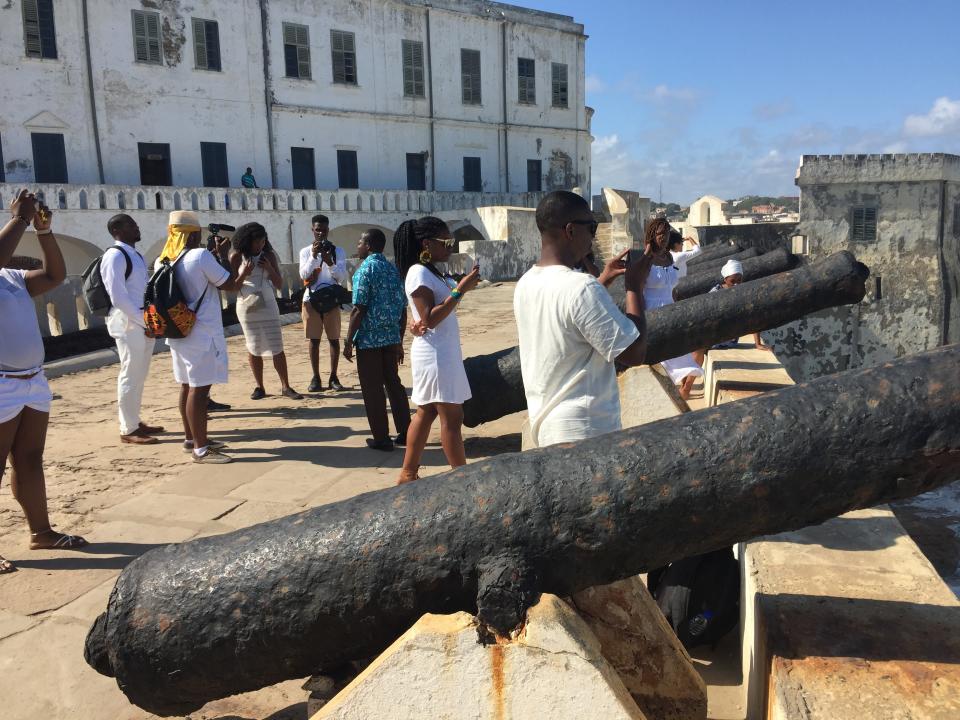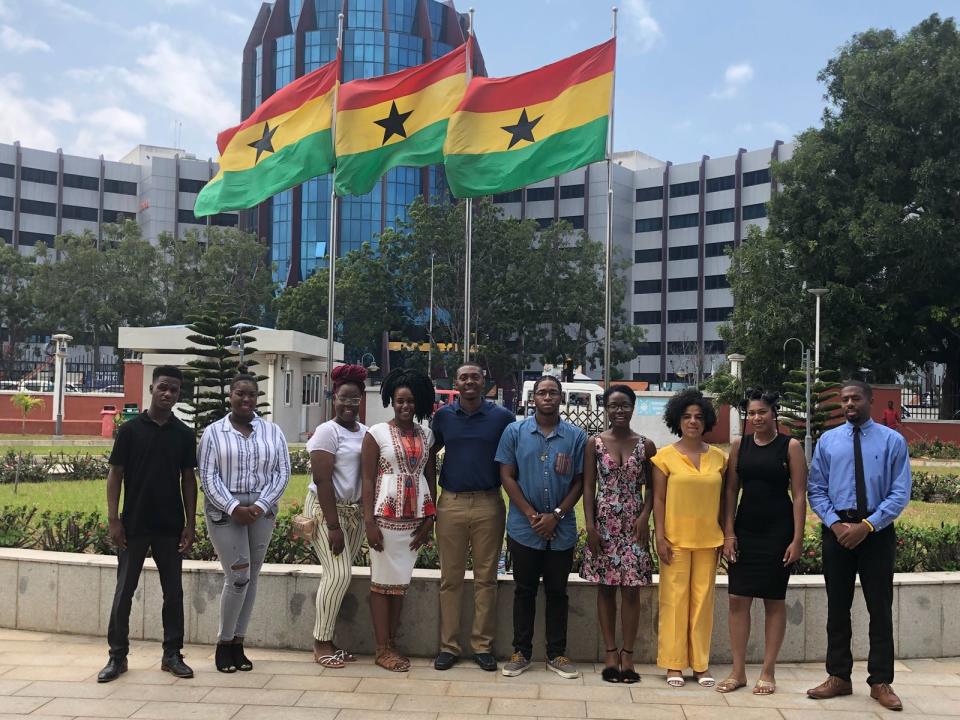Birthright Africa Allows Young People to Explore Their Heritage Firsthand
My life changed forever in 2018. That summer, I was selected to become a scholar with Birthright AFRICA, a non-profit with the mission of helping young people of African-descent to explore their heritage firsthand.
Prior to taking my Birthright, I felt bogged down by pent-up resentment and antagonism due to a history that it seemed like my people had no say in. For those of us in the diaspora, our history, according to the textbooks, starts with slavery. And as a Haitian, our glimmer of hope (The Haitian Revolution) is dulled by the following centuries of sabotage, occupation, embargoes, corruption and a myriad of other issues dictated by people who look nothing like me. I was doubtful and somewhat cynical about what the future held not only for me as an individual, but for Black people as a whole. I wondered if I could fulfill my potential in a world where my ancestors and their stories have been stifled.

But then I left for the trip. The first part of the Birthright experience was an exploration of African heritage right here in the U.S. This was significant in itself because it immediately instilled pride and confidence in us as scholars, as well as an entitlement to everything we were denied. Black Americans have made strides not because of graciousness or benevolence of others, but because of a consistent struggle towards freedom, justice, and self-realization. We were also exposed to Black entrepreneurs in a variety of fields who made themselves available to us and continue to support us in realizing our legacies of innovation. Our exploration finally culminated with our trip to Ghana, where we met some of the most genuine spirits who truly embodied a Pan-African spirit. Our exploration consisted of the same concepts we covered in the U.S., but now we got to visit the slave dungeons where it all began. Just above the Cape Coast Dungeons was a church where services were held regularly by the European traders.
We were all in a somber mood while exploring the horrid conditions on the tour, but what completely broke me down was walking through the Door of No Return, looking over the horizon of the Atlantic, and realizing that my ancestors had no idea where this ocean led when they were being packed onto the slave ships. Quite literally, the ability to determine their own fate and destiny was taken from them, a feeling that I and many of us in the diaspora still felt centuries later.
What brought me solace and a sense of inner peace that stays with me today, though, is recognizing that I was able to return. All the suffering and surviving that my ancestors experienced was not in vain, because here I was, standing in a place etched deep in our collective memory. And I got to interact with and network with Black innovators from across the diaspora who, through their efforts, were realizing a future where people like us could truly self-determine and restore our fate back into our own hands. In the words of Maya Angelou, we were “bringing the gifts that [our] ancestors gave,” realizing “the dream and the hope of the slave.”

My Birthright experience freed my mind and made me realize that the possibilities for me are truly limitless; that the strife of my forebears shouldn’t be and isn’t in vain because here I am today, a living representation of them. Part of the work that Birthright has its scholars undergo is envisioning their own legacy of innovation — the imprint and influence they will leave behind. Since I once walked through the world feeling disempowered, I decided to focus my legacy of innovation on empowerment and having our people truly control our own destinies.
Through Birthright Africa, I learned how to use the frustration I felt in a constructive manner. Life may not have dealt me the best deck of cards, but it’s how I play the game with what I’ve been given that matters the most. And through the exploration of my African heritage through Birthright Africa, I realized that’s what my ancestors had been doing the entire time. Every pain that they suffered, every struggle that they endured, was a step forward towards a better future, even if they couldn’t see it at the time. It’s now my turn to continue that legacy. I also realized that that connection is still alive. I may now speak a different language, but the foods we eat, the way we carry ourselves, the way we relate to one another, and our deeply ingrained spirituality reflect a bond that is still there. I now have a sense of inner peace and ease that wasn’t there before. And it isn’t just because I went to Ghana, but because I finally achieved a closure that Birthright Africa helped me realize. I can move forward with my life, with intention behind everything I do, because now I truly believe that I can determine my future.
The great thing about Birthright Africa is that it’s not just a feel-good experience where you go to Africa for a week and come back unchanged; you now have new, genuine friendships, and a large network to tap into. They encourage personal and professional help. As the entrepreneurs we met told us, it can be hard to get into certain spaces without someone who can vouch for you and help you get through those doors. So this program not only provides a meaningful cultural journey, but offers something to look forward to when you land back in the U.S. I believe that every one of us in the diaspora should make that pilgrimage at least once because it is our Birthright to restore everything that was taken from us.

Want more from Teen Vogue? Check this out: How Do You Move Past a Genocide That Destroyed Your Country?
Stay up-to-date with the politics team. Sign up for the Teen Vogue Take!
Originally Appeared on Teen Vogue

